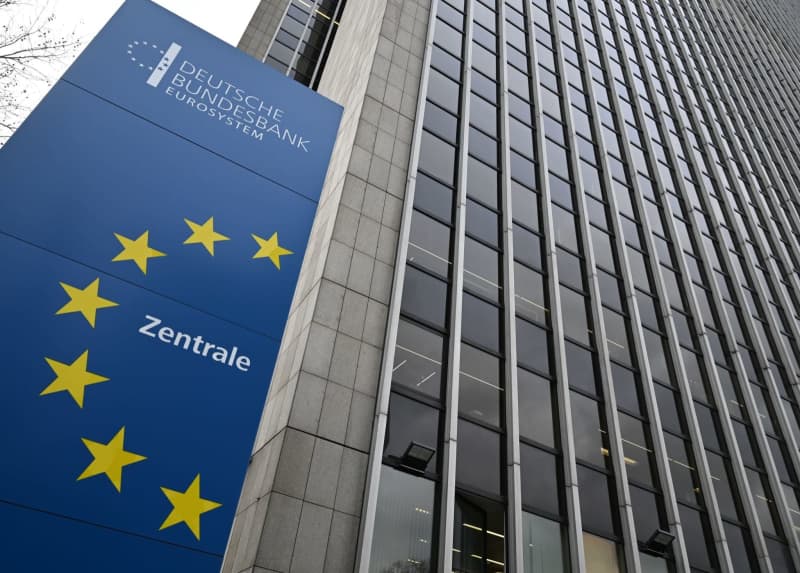A stele with the inscription “Deutsche Bundesbank Eurosystem” stands in front of the Bundesbank headquarters. Arne Dedert/dpa
Whether in mechanical engineering, chemicals or electronics, the German economy has broadly lost competitiveness in global markets, the country’s central bank warned on Monday.
“German export market shares have declined since 2017 and have grown particularly weakly in international comparison since 2021,” the Bundesbank said in its current monthly report.
The weakness in exports has significantly contributed to the crisis in the German economy, which faces the threat of a third consecutive year without growth in 2025, the bank said.
Germany has fallen behind other countries in the eurozone, the United States and China in the global market. Although Germany made some gains in 2023, the trend is already pointing downward again in 2024. Without the loss of market share in exports, the German economy would have grown by 2.4 percentage points more between 2021 and 2024, the Bundesbank said.
The Bundesbank’s findings are alarming as the German economy is heavily dependent on foreign trade. Almost one in four jobs in the country depends on exports, which shrank in 2024 and are now under significant pressure due to the tariff dispute with the US.
Slump in demand for Cars
Particularly concerning is that the majority of the lost export market shares between 2021 and 2023 are attributed to a deteriorated competitive position in key industries. The central bank said this included mechanical engineering, the electronics sector and the chemical and metal industries. Additionally, there has been globally weak demand for traditionally top-selling products from Germany, especially cars.
The weakness of exports follows relatively good years for German foreign trade. After the global financial crisis, German export market shares remained practically stable until 2016, according to the Bundesbank.
